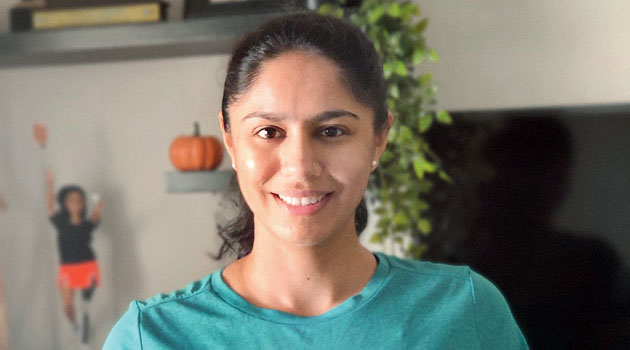The world is an oyster for Manasi Joshi. The para badminton player, who has swept away innumerable hurdles in pursuit of her goals, came into the limelight last year by winning the World Championships in Basel.
Laurels she has won aplenty, the latest being making it to the cover of TIME Asia as a Next Generation Leader. It soon became a double delight when the shuttler got a Barbie doll modelled to her likeness.
“This recognition feels great because many people are talking about it and hence a new conversation begins in the field of disability and para sport. There is immense satisfaction in being the person who has started that conversation,” Manasi told The Telegraph.
“It took me quite by surprise when TIME informed me that they wanted to feature me as a Next Generation Leader…A recognition by TIME is no mean thing.
“The same goes for a brand like Barbie. It’s terrific for para sport when Barbie shouts out to the world — and mainly to girls — that ‘look out, you can be anything that you wish to be’. I feel humbled that a name like Barbie felt I could be an inspiration to the younger generation,” Manasi continued.
Manasi is identified as someone who has broken stereotypes. What strength enabled her to come this far?
“When I started off with sport (after her accident in 2011 when she lost her left leg), my initial goal was simply to quicken my rehab process. It gradually led to a heightening of interest. I quit my job and threw myself into badminton. Of course I made sure there was a safety net around me so that if I failed to succeed, I could fall back.”
A word of advice the 31-year-old would offer to those facing similar adversities is: “Whatever ill happens — be it an accident, illness or death of a close one — remember that it is beyond your control.
“But the recovery is in our hands… Learning to walk, as in my case, was in my hands. I was determined that my tomorrow will be better than yesterday and I have ensured that such is the case.”
Manasi, who is preparing for the Paralympics mixed doubles, is pleased to see the country taking positive steps towards inclusion.
“The most important thing is for people to accept that para sport is not a second class sport. We train just as hard as any able-bodied athlete. Take me, for instance, I train 7-8 hours daily. So I should get the same rewards and recognition.”
However, that the country is building two sports complexes exclusively for para sport — in Gandhinagar and Gwalior — and the fact that the central government now gives the same rewards for everyone point towards progress.
Currently, Manasi uses three sets of prosthetics — for running, walking and playing — and it is a challenge for her to carry them around.
“Hope in my lifetime technology will be able to give me one set of prosthetics for all my needs,” she says.
Last to last year, while travelling to a tournament, she lost her prosthetics in transit and was forced to play with her walking prosthetics. “Sounds like a struggle to you? This and many more such are now mere stories to me,” the gutsy Manasi concludes, laughing.

